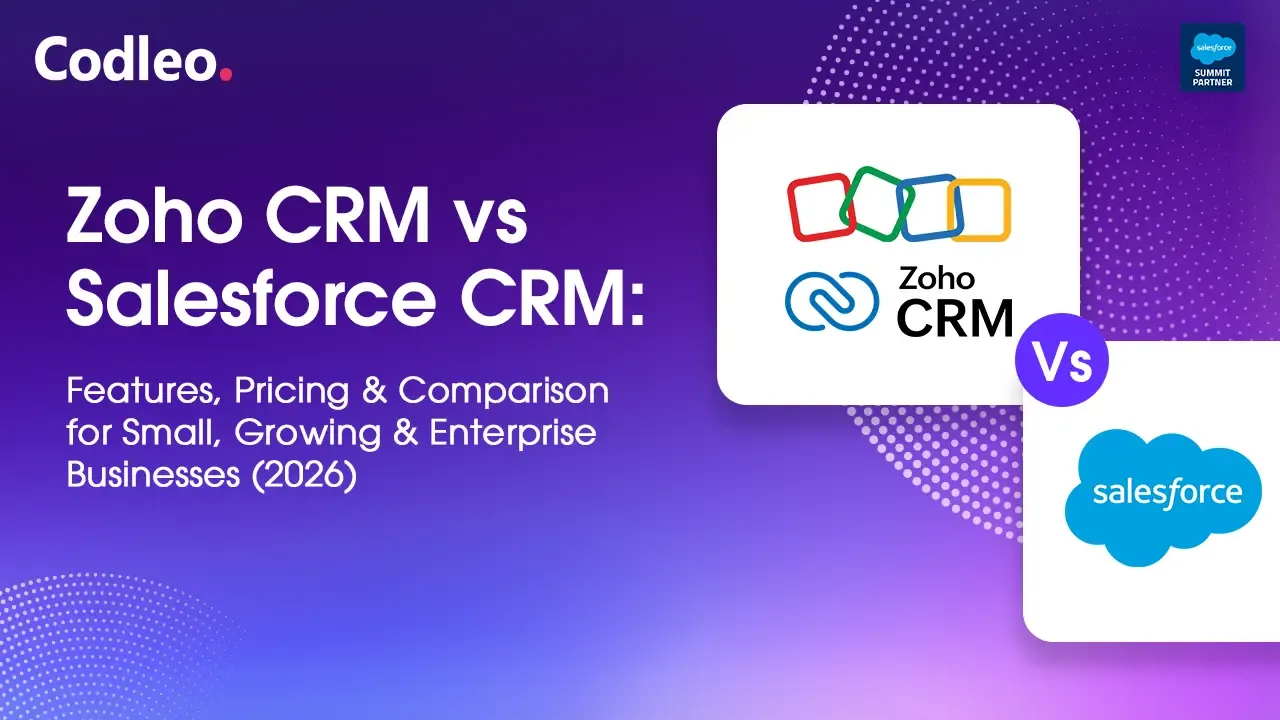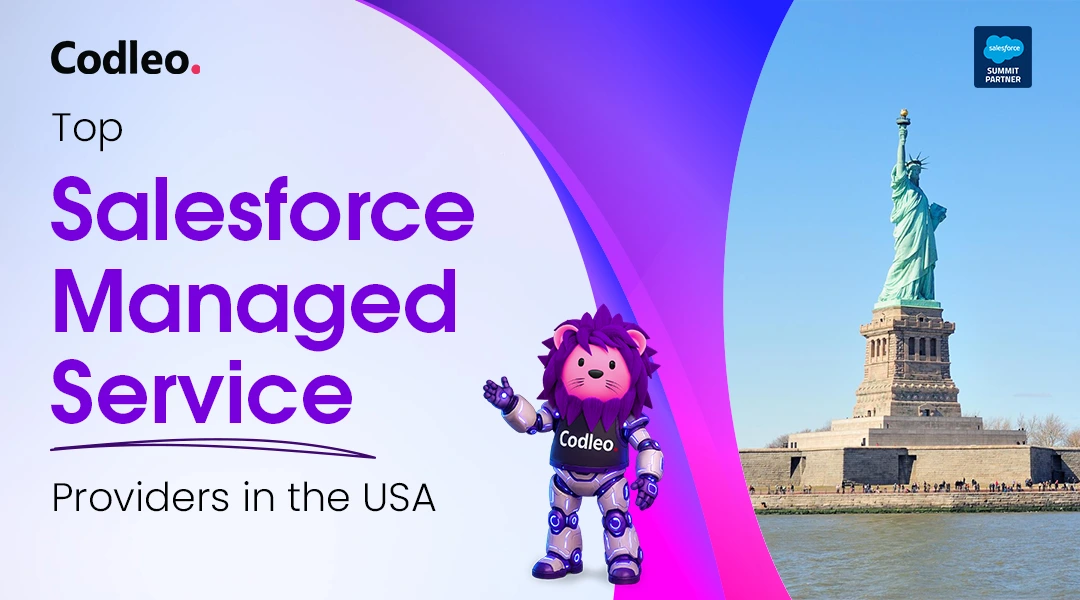Publish date:
Keeping up with the latest trends in the DevOps world can be challenging, but it is essential for maintaining your organization’s relevance. As DevOps continues to evolve, architects and developers must stay informed about the latest methodologies and tools to remain competitive.
As we progress through 2025, it’s crucial to monitor several key trends in Salesforce DevOps. These trends may present both challenges and opportunities, depending on your approach. To give you a head start, we’ve delved into the future of Salesforce DevOps trends to help you navigate these changes effectively.
What DevOps Teams are Doing Now
Traditionally, the development process was siloed, with minimal communication and collaboration between teams, resulting in lengthy implementation times and a high risk of errors or defects.
Today, organizations are adopting agile software development combined with modern DevOps methodologies. This involves iterative development, with small, cross-functional teams working collaboratively to deliver incremental improvements rapidly. DevOps further enhances this approach by integrating development, operations, and quality assurance into a unified, seamless workflow, supported by new tools, updated software, and AI technology.
What Are the Biggest Challenges DevOps Teams Can Expect to Face?
As we move into a more efficient era of DevOps, it is essential to address the cultural aspects that may lag behind. Before adopting new changes, DevOps teams should review and tackle common challenges to ensure they are fully prepared to evolve:
-
Resistance to Change: Implementing DevOps often requires significant cultural shifts and changes in established processes, which can face resistance from stakeholders used to traditional methodologies.
-
Aligning Disparate Teams and Processes: DevOps necessitates close collaboration between previously siloed teams, such as development, operations, and quality assurance. Aligning these teams and their processes can be particularly challenging in large organizations with complex structures.
-
Managing Complex Infrastructures: Modern applications often depend on intricate infrastructures, including cloud services, microservices, and containers. Effectively managing these infrastructures while maintaining reliability and scalability is a major challenge for DevOps teams.
-
Ensuring Security and Compliance: Security and compliance are critical considerations in DevOps workflows, especially in regulated industries like finance and healthcare. Ensuring that DevOps practices meet security and regulatory requirements while maintaining agility and efficiency requires a careful balance.
Do any of these challenges sound familiar to you? If so, it’s important to embrace change whenever it arises. Addressing these issues requires a combination of cultural shifts, process improvements, and the adoption of suitable tools and technologies.
The Key Components of Salesforce DevOps Today
Before we delve into future trends in Salesforce DevOps, it's crucial to highlight the key components that architects should already be implementing:
-
Adopting Agile Principles: Agile methodologies focus on iterative development, collaboration, and customer feedback. By embracing agile principles, organizations can respond more swiftly to changing requirements and deliver value to customers more effectively.
-
Integrating Automation: Automation is fundamental to DevOps, allowing organizations to automate repetitive tasks such as testing, deployment, and infrastructure provisioning. Automating these manual processes streamlines workflows, reduces errors, and accelerates time-to-market.
-
Fostering Continuous Improvement: DevOps cultivates a culture of continuous improvement, where teams aim to enhance processes, tools, and performance iteratively. By adopting a mindset of continuous learning and experimentation, organizations can adapt to market changes and drive innovation.
-
Enhancing Collaboration: DevOps emphasizes the importance of collaboration and communication among cross-functional teams, including developers, operations, QA, and business stakeholders. Breaking down silos and fostering a collaborative culture enables organizations to accelerate delivery, enhance product quality, and boost customer satisfaction.
7 Trends in Salesforce DevOps to Watch in 2024
As Salesforce DevOps continues to evolve, it is crucial for architects to stay ahead of the curve to drive innovation and efficiency in their workflows. In 2024, several trends based on expert predictions are set to significantly impact the future of Salesforce DevOps, influencing how architects approach development and operations. Here, we break down each of these trends and explore their implications for architects and development teams.
Current Practices in Salesforce DevOps
-
Adopting Agile Principles: Agile methodologies emphasize iterative development, collaboration, and customer feedback. By embracing agile principles, organizations can respond quickly to changing requirements and deliver value to customers more effectively.
-
Integrating Automation: Automation is fundamental to DevOps, allowing organizations to automate repetitive tasks such as testing, deployment, and infrastructure provisioning. Automating these manual processes streamlines workflows, reduces errors, and accelerates time-to-market.
-
Fostering Continuous Improvement: DevOps cultivates a culture of continuous improvement, where teams aim to enhance processes, tools, and performance iteratively. By adopting a mindset of continuous learning and experimentation, organizations can adapt to market changes and drive innovation.
-
Enhancing Collaboration: DevOps emphasizes the importance of collaboration and communication among cross-functional teams, including developers, operations, QA, and business stakeholders. Breaking down silos and fostering a collaborative culture enables organizations to speed up delivery, improve product quality, and increase customer satisfaction.
Future Trends in Salesforce DevOps for 2024
1. Embracing Continuous Integration and Continuous Delivery (CI/CD)
Development teams are increasingly adopting Continuous Integration and Continuous Delivery (CI/CD) practices as essential elements of modern Salesforce DevOps. These methodologies automate the integration and delivery of code changes, streamlining development processes, speeding up deployment cycles, and enhancing collaboration among team members. By incorporating CI/CD, architects can drive efficiency and innovation in their workflows, ultimately delivering superior products to customers.
2. Leveraging Automation for Testing and Deployment
Automation continues to revolutionize testing and deployment processes in Salesforce DevOps. By automating repetitive tasks such as testing and deployment, architects can significantly reduce manual effort, minimize errors, and ensure consistent quality throughout the development lifecycle. The emergence of Git-based DevOps is poised to offer more modern developer experiences, accelerating velocity and improving team collaboration. Leveraging automation tools allows architects to streamline workflows, optimize resource allocation, and focus on delivering unparalleled value to customers.
3. Streamlining Development Processes with Low-Code Solutions
In 2024, organizations will increasingly adopt low-code platforms to accelerate development cycles while maintaining high-quality standards. These platforms enable architects and developers to build applications with minimal hand-coding, allowing for faster iteration and deployment. As the demand for rapid innovation grows, low-code solutions are becoming indispensable tools for driving efficiency and agility in Salesforce development workflows.
4. Harnessing AI for Enhanced Test Automation
Artificial Intelligence (AI) is being integrated into test automation processes, transforming how developers validate their code. AI-powered testing solutions offer advanced capabilities such as intelligent test case generation, anomaly detection, and predictive analysis, enabling architects to achieve greater efficiency and accuracy in their testing efforts. These advancements, coupled with modern SaaS applications built as composable applications, enhance testing strategies, improve software quality, and accelerate time-to-market for Salesforce applications.
5. Overcoming Bottlenecks and Blind Spots
In the coming year, as costs and complexities increase within microservice architectures, there will be a trend towards simpler frameworks like monolithic architecture. By simplifying the architectural approach, developers can focus on advancing applications rather than being bogged down by support and issue resolution. Whether navigating the complexities of microservices or embracing the simplicity of monolithic architecture, addressing bottlenecks and hidden weaknesses is crucial for maintaining momentum in Salesforce DevOps efforts. Architects must proactively confront these obstacles to ensure seamless project delivery.
6. Achieving On-Time Projects and Go-Lives
In 2024, the expectation of timely project completion and successful go-lives will remain paramount as companies shift towards a product-centric approach. Delays in implementing expected changes will not be tolerated. Architects will need to implement strategies that emphasize efficiency and reliability, ensuring consistent adherence to project deadlines and swift delivery to customers.
7. Empowering Teams with End-to-End Platform Features
Composable applications will be central to achieving faster development cycles, scalability, and cost efficiency. Architects embracing this shift will streamline application development, reduce time-to-market, and adapt to changing customer demands. Additionally, the emergence of Web3 technology will revolutionize enterprise computing with its consensus-driven approach, positioning Web3 as the next evolutionary step from virtual machines to containers to serverless functions.
8. Hiring the Right Architects for the Job
While understanding these trends is essential, organizations need the right talent to effectively adopt and implement them. Salesforce DevOps architects will play a pivotal role in aligning Salesforce solutions with business needs while optimizing development and operational processes. As a result, organizations will prioritize hiring architects who are well-equipped to meet these challenges, influencing hiring decisions across the industry. Salesforce architects should focus on developing skills such as:
-
Continuous Learning and Adaptation: Staying updated with the latest Salesforce features and best practices.
-
Automation and Tool Mastery: Mastering automation tools and CI/CD processes to streamline workflows.
-
Advanced Understanding of Cloud Architectures: Deepening knowledge of cloud architectures and optimization techniques.
-
Security and Compliance: Ensuring adherence to security standards and compliance requirements to protect sensitive data.
-
Cross-Functional Collaboration Skills: Working effectively with diverse teams and stakeholders to drive alignment and collaboration.
-
Metrics and Performance Analytics: Leveraging analytics to optimize workflows and monitor system performance.
-
Change Management and Training: Leading cultural and procedural changes within the organization and providing training to team members.
-
Innovation and Experimentation: Fostering a culture of innovation and experimentation to drive continuous improvement.
-
Scalability and Performance Optimization: Designing scalable systems that can accommodate future growth and optimizing performance for enhanced efficiency.
By staying ahead of these trends and addressing common challenges, Salesforce DevOps teams can drive innovation and efficiency, ensuring their organization remains competitive in an ever-evolving landscape.
Codleo's Role in Transforming Salesforce DevOps
Feeling overwhelmed by the plethora of trends? Rest assured, you don’t have to tackle them on your own. Codleo is at the cutting edge of transforming Salesforce DevOps, equipping architects with essential tools to optimize their workflows.
Codleo offers a comprehensive suite of tools and features designed to streamline development processes, empower teams, and expedite project delivery. Our user-friendly low-code solutions simplify development tasks, while our end-to-end platform features enhance seamless collaboration. Codleo provides architects with the resources they need to succeed in the ever-evolving Salesforce DevOps landscape.
Conclusion
In conclusion, as Salesforce DevOps continues to evolve, staying ahead of emerging trends and overcoming common challenges is crucial for driving innovation and efficiency. Codleo stands as a trusted partner in this journey, offering comprehensive tools and resources to streamline development workflows and enhance collaboration. By leveraging Codleo’s expertise and solutions, architects and development teams can confidently navigate the dynamic landscape of Salesforce DevOps, ensuring successful project delivery and sustained organizational growth.















